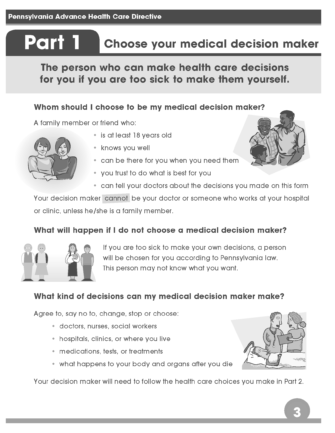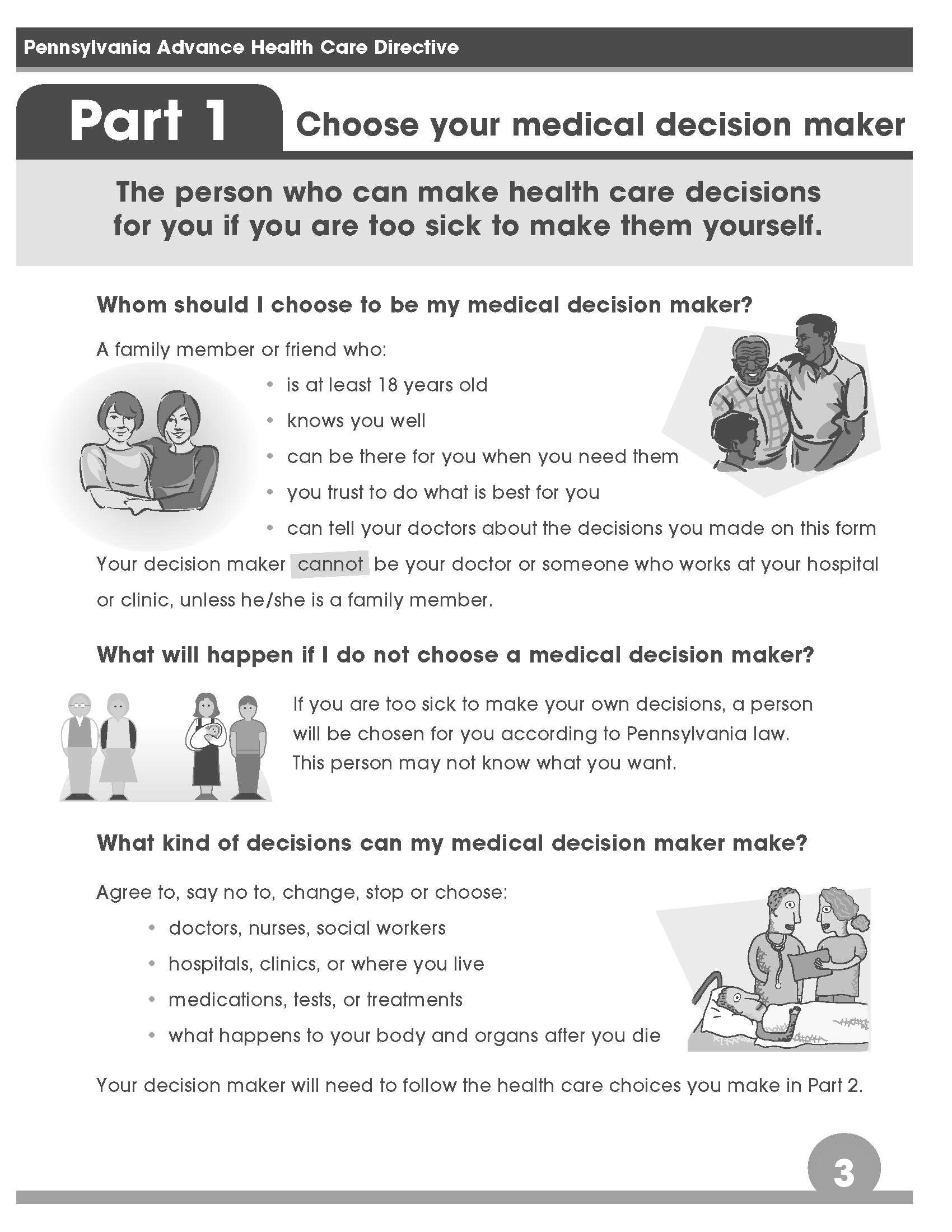Signing Requirements
A medical power of attorney must be signed by the principal (patient) in front of two witnesses who are 18 or older. If the principal directs someone to sign on their behalf, that person cannot serve as a witness.[1]
Power of Attorney (Preview)
Legal Definition
“Health care power of attorney.” A writing made by a principal designating an individual to make health care decisions for the principal.[2]
Revocation
The principal can revoke a medical power of attorney in writing or by personally notifying their physician, health care provider, or health care agent that the document has been revoked. Revocation is only possible if the principal is of sound mind.[3]

